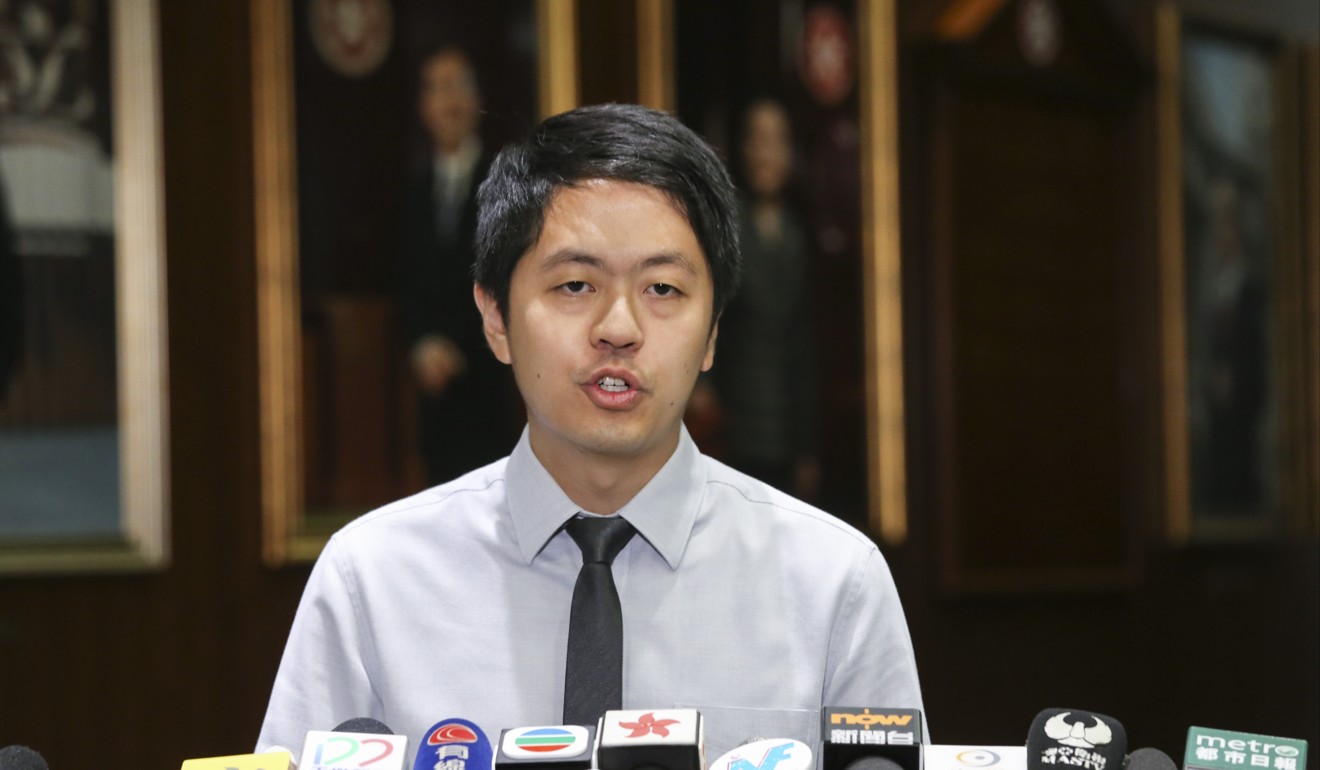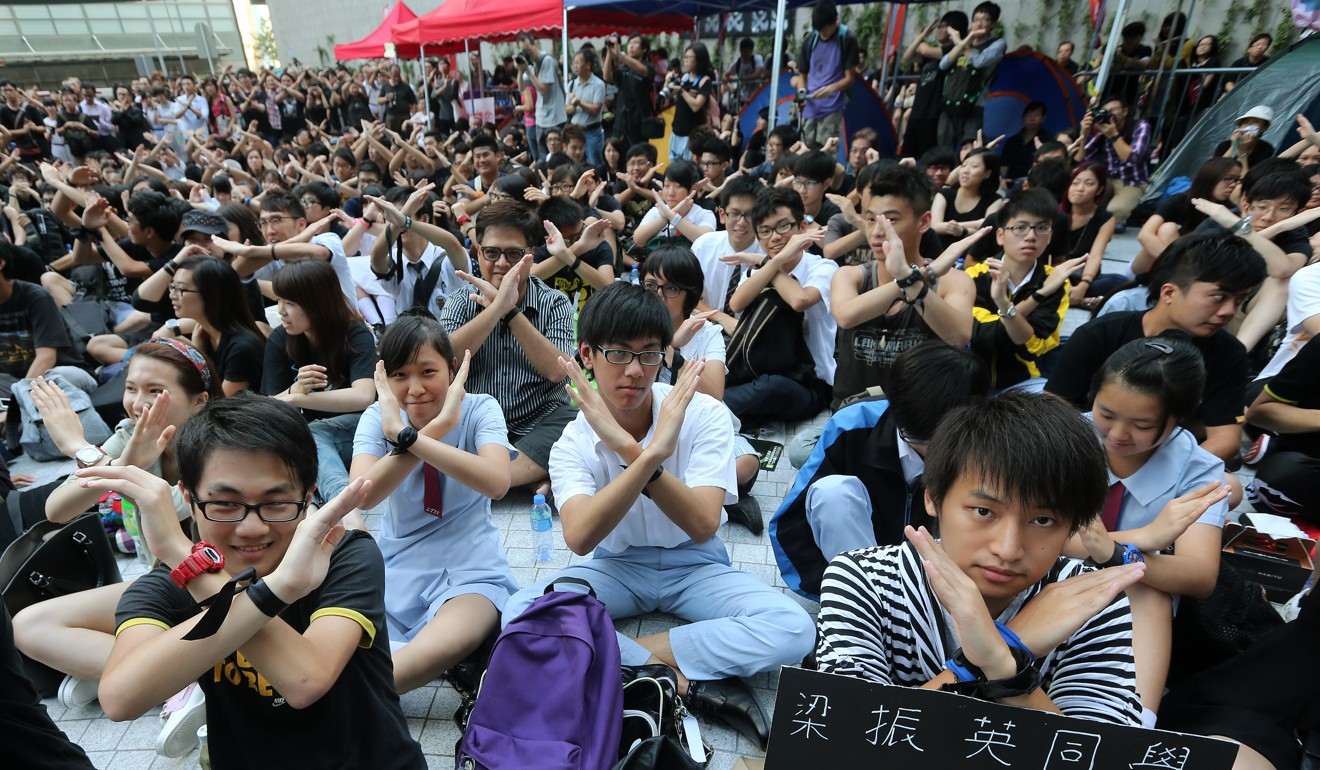
Legislator creates way to report ‘patriotic content’ in Hong Kong schools, amid ‘brainwashing’ claims
Democratic Party’s Ted Hui says he has spotted ‘extreme examples’ of biased patriotic content in both primary and secondary schools
A lawmaker in Hong Kong has created a concern group to report patriotic content in schools amid claims that elements of “brainwashing” are trickling down to different subjects.
Democratic Party lawmaker Ted Hui Chi-fung said he had spotted “extreme examples” in teaching materials and found biased patriotic content in the subjects of general studies in primary school and Chinese history, liberal studies and Basic Law education in secondary school.
Critics are concerned that the Hong Kong government wants to revive plans to make national education compulsory in public schools, after a failed attempt to do so in 2012. Former chief executive Leung Chun-ying’s government had to withdraw the plan after more than 30,000 protesters took to the streets at the start of the school term in September of that year.

Secretary for Education Kevin Yeung Yun-hung recently said that he did not feel the need for a separate subject for patriotic education anytime soon and that national education had continued despite it not being an independent subject, but Hui said he did not find Yeung’s words reassuring. He warned of the government “boiling a frog in warm water”, a metaphor referring to danger building incrementally, unnoticed by the victim until it is too late.
Hong Kong leader Carrie Lam doubles down on HK$5 billion education pledge on first day in office
“The brainwashing elements of national education have continued to appear in different subjects,” Hui said.
He pointed to a section in the Basic Law education teaching materials, endorsed by the Education Bureau. It encouraged pupils to respond to examples of property developers using civil disobedience to justify poor building designs that made them more money.
“If we use unreasonable examples to teach civil obedience, can we really let our pupils understand what it is or are we guiding them to think of it in a biased manner as [we are making them think] civil obedience is an excuse to break the law,” he said.
Hong Kong leader Carrie Lam suggests national education back on the table, as she unveils HK$5 billion-per-year cash boost
Hui also cited guidelines for liberal studies, which advised teachers to remind pupils to use a positive attitude and consider China’s development process and current situation when teaching projects that have a negative impact on national identity.

“This goes against the concept of critical thinking,” he said, adding he had received complaints from teachers pressured to follow the guideline.
Act on national education for the young, Hong Kong leader Carrie Lam told by Chinese minister on Beijing visit
While the city’s schools have autonomy, Hui believed official documents would have some effect on the way they teach the topic, adding a lack of Basic Law education materials resulted in teachers having to use those provided by the government.
Hui said the concern group will allow Hongkongers to report biased content, request relevant authorities to amend teaching materials and have discussions with other education stakeholders.

